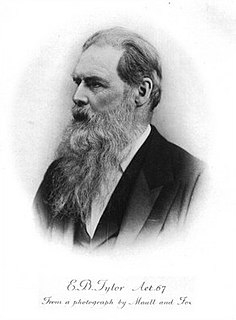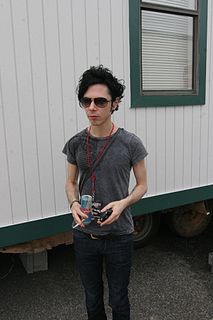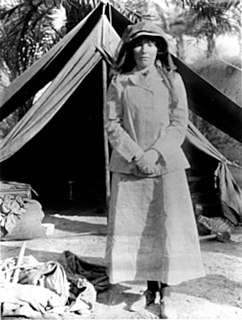A Quote by Richard M. Weaver
The member of a culture ... purposely avoids the relationship of intimacy; he wants the object somehow depicted and fictionalized. ... He is embarrassed when this is taken out of its context of proper sentiments and presented bare, for he feels that this is a reintrusion of that world which his whole conscious effort has sought to banish. Forms and conventions are the ladder of ascent. And hence the speechlessness of the man of culture when he beholds the barbarian tearing aside some veil which is half adornment, half concealment.
Quote Topics
Adornment
Ascent
Aside
Banish
Barbarian
Bare
Concealment
Conscious
Conscious Effort
Context
Conventions
Culture
Effort
Embarrassed
Feels
Forms
Half
He Man
Hence
His
Intimacy
Ladder
Man
Member
Object
Out
Presented
Proper
Relationship
Sentiments
Some
Somehow
Sought
Taken
Tearing
Veil
Wants
Which
Whole
World
Related Quotes
A text makes the word more specific. It really kind of defines it within the context in which it is being used. If it is just taken out of a context and presented as a sort of object, which is what - you know, which is a contemporary art idea, you know. It is like an old surrealist idea or an old cubist idea to take something out of context and put it in a completely different context. And it sort of gives it a different meaning and creates another world, another kind of world in which we enter.
It is characteristic of the barbarian ... to insist upon seeing a thing "as it is." The desire testifies that he has nothing in himself with which to spiritualize it; the relation is one of thing to thing without the intercession of the imagination. Impatient of the veiling with which the man of higher type gives the world imaginative meaning, the barbarian and the Philistine, who is the barbarian living amid culture, demands the access of immediacy. Where the former wishes representation, the latter insists upon starkness of materiality, suspecting rightly that forms will mean restraint.
Many teachers of the Sixties generation said "We will steal your children", and they did. A significant part of America has converted to the ideas of the 1960s - hedonism, self-indulgence and consumerism. For half of all Americans today, the Woodstock culture of the Sixties is the culture they grew up with - their traditional culture. For them, Judeo-Christian culture is outside the mainstream now. The counter-culture has become the dominant culture, and the former culture a dissident culture - something that is far out, and 'extreme'.
The most degrading of human passions is the fear of death. It tears away the restraints and the conventions which alone make social life possible to man; it reveals the brute in him which underlies them all. In the desperate hand-to-hand struggle for life there is no element of nobility. He who is engaged upon it throws aside honor, he throws aside self-respect, he throws aside all that would make victory worth having - he asks for nothing but bare life.
The evolution of cultures appears to follow the pattern of the evolution of species. The many different forms of culture which arise correspond to the "mutations" of genetic theory. Some forms prove to be effective under prevailing circumstances and others not, and the perpetuation of the culture is determined accordingly.
If a man, holding a belief which he was taught in childhood or persuaded of afterwards, keeps down and pushes away any doubts which arise about it in his mind, purposely avoids the reading of books and the company of men that call in question or discuss it, and regards as impious those questions which cannot easily be asked without disturbing it - the life of that man is one long sin against mankind.
The American city should be a collection of communities where every member has a right to belong. It should be a place where every man feels safe on his streets and in the house of his friends. It should be a place where each individual's dignity and self-respect is strengthened by the respect and affection of his neighbors. It should be a place where each of us can find the satisfaction and warmth which comes from being a member of the community of man. This is what man sought at the dawn of civilization. It is what we seek today.
For the world is broken, sundered, busted down the middle, self ripped from self and man pasted back together as mythical monster, half angel, half beast, but no man...Some day a man will walk into my office as a ghost or beast or ghost-beast and walk out as a man, which is to say sovereign wanderer, lordly exile, worker and waiter and watcher.
Man is more than his environment. It is from the innate quality of the Spirit in him, his inner storehouse, that he draws those ideas, his intuitions, which unify his perceptions of the external world instantaneously with a value which is qualitative and not quantitative, and which he embodies in the works of his culture - those achievements which belong not only to one particular time but to all times, and mark the path of his upward progress.
The way in which the photograph records experience is also different from the way of language. Language makes sense only when it is presented as a sequence of propositions. Meaning is distorted when a word or sentence is, as we say, taken out of context; when a reader or listener is deprived of what was said before, and after. But there is no such thing as a photograph taken out of context, for a photograph does not require one. In fact, the point of photography is to isolate images from context, so as to make them visible in a different way.







































